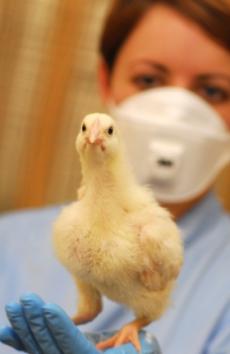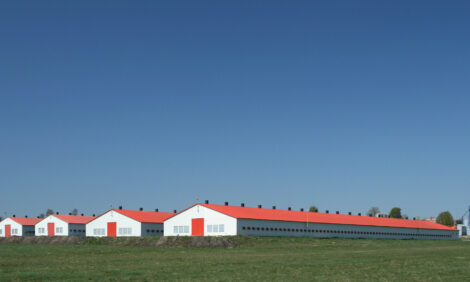



Roslin Institute to undertake gene study set to investigate how flu jumps species
New study will identify genes that reduce Influenza A infection in pigs and chickens, and genes that limit the spread of the virus to people.Influenza A virus - known for causing “bird flu” and “swine flu” - can affect both people and animals. The virus is able to jump to new species, where it can cause more severe symptoms. Seasonal epidemic outbreaks cause significant disease and death in people.
A new study led by Dr Finn Grey of The Roslin Institute aims to identify genes that are important in reducing infection by Influenza A virus in pigs and chickens, and genes that limit the spread of the virus to people.
A barrier to flu jumps to new species
Jumps to new species are relatively rare because the virus has to adapt to the new species and because a specific ‘arm’ of the immune system – called the host interferon response – represents a significant barrier to the virus spreading from animals to people.
This study will investigate which genes are important for inhibiting replication of Influenza A virus in pigs and chickens and which genes of the host interferon response limit the spread of the virus from animals to people.
Understanding how to combat influenza
The study, which will receive over £750,000 from the UK Governments’s Biotechnology and Biological Sciences Research Council, will boost our understanding of how to combat influenza strains.
Work will be conducted in collaboration with Roslin scientists Professor Paul Digard, Dr Kenneth Baillie and Dr Jacqueline Smith as well as Dr Sam Wilson from the Centre for Virus Research of the University of Glasgow.










